|
You easily have 1 or maybe 100 friends that have their child/children diagnosed with ADD/ADHD. You have likely encountered MANY people with different opinions on whether ADHD is even a "real" diagnosis. I'm not here to start a debate or even give you my personal opinions. With October being ADHD awareness month, I thought I would share some startling and exciting new info with everyone. A little definition and history of ADHD... Attention deficit hyperactivity disorder (ADHD) is a neurodevelopmental disorder that most often occurs in children, but can also be diagnosed in adulthood. Symptoms of ADHD include:
History Lesson:
5 fast facts
This happens to be the most interesting fact to me so far: The Causes of ADHD Scientists have not yet identified the specific causes of ADHD. There is evidence that genetics contribute to ADHD. For example, three out of four children with ADHD have a relative with the disorder. Other factors that may contribute to the development of ADHD include being born prematurely, brain injury and the mother smoking, using alcohol or having extreme stress during pregnancy. So we are treating this condition with some serious drugs, but we really can't confirm where it is coming from or how to treat it safely...hummmmm. I also found this very interesting. In an article published by Psychology Today, the wrote about why the French don't have ADHD. Here's their article: Why French Kids Don't Have ADHDFrench children don't need medications to control their behavior. Posted Mar 08, 2012 In the United States, at least 9 percent of school-aged children have been diagnosed with ADHD, and are taking pharmaceutical medications. In France, the percentage of kids diagnosed and medicated for ADHD is less than .5 percent. How has the epidemic of ADHD—firmly established in the U.S.—almost completely passed over children in France? Is ADHD a biological-neurological disorder? Surprisingly, the answer to this question depends on whether you live in France or in the U.S. In the United States, child psychiatrists consider ADHD to be a biological disorder with biological causes. The preferred treatment is also biological—psycho stimulant medications such as Ritalin and Adderall. French child psychiatrists, on the other hand, view ADHD as a medical condition that has psycho-social and situational causes. Instead of treating children's focusing and behavioral problems with drugs, French doctors prefer to look for the underlying issue that is causing the child distress—not in the child's brain but in the child's social context. They then choose to treat the underlying social context problem with psychotherapy or family counseling. This is a very different way of seeing things from the American tendency to attribute all symptoms to a biological dysfunction such as a chemical imbalance in the child's brain. French child psychiatrists don't use the same system of classification of childhood emotional problems as American psychiatrists. They do not use the Diagnostic and Statistical Manual of Mental Disorders or DSM. According to Sociologist Manuel Vallee, the French Federation of Psychiatry developed an alternative classification system as a resistance to the influence of the DSM-3. This alternative was the CFTMEA (Classification Française des Troubles Mentaux de L'Enfant et de L'Adolescent), first released in 1983, and updated in 1988 and 2000. The focus of CFTMEA is on identifying and addressing the underlying psychosocial causes of children's symptoms, not on finding the best pharmacological band-aids with which to mask symptoms. To the extent that French clinicians are successful at finding and repairing what has gone awry in the child's social context, fewer children qualify for the ADHD diagnosis. Moreover, the definition of ADHD is not as broad as in the American system, which, in my view, tends to "pathologize" much of what is normal childhood behavior. The DSM specifically does not consider underlying causes. It thus leads clinicians to give the ADHD diagnosis to a much larger number of symptomatic children, while also encouraging them to treat those children with pharmaceuticals. The French holistic, psychosocial approach also allows for considering nutritional causes for ADHD-type symptoms—specifically the fact that the behavior of some children is worsened after eating foods with artificial colors, certain preservatives, and/or allergens. Clinicians who work with troubled children in this country—not to mention parents of many ADHD kids—are well aware that dietary interventions can sometimes help a child's problem. In the U.S., the strict focus on pharmaceutical treatment of ADHD, however, encourages clinicians to ignore the influence of dietary factors on children's behavior. And then, of course, there are the vastly different philosophies of child-rearing in the U.S. and France. These divergent philosophies could account for why French children are generally better-behaved than their American counterparts. Pamela Druckerman highlights the divergent parenting styles in her recent book, Bringing up Bébé. I believe her insights are relevant to a discussion of why French children are not diagnosed with ADHD in anything like the numbers we are seeing in the U.S. Drugs, Drugs, and more Drugs Do you really know what the drugs are that are being used to treat ADHD. So many people just agree to take whatever they are told to give themselves or their children without so much as a second thought. Take a peek at the long list below of medication prescribed for ADHD. My biggest concern is all of the AMPHETAMINES! Wowzers!!!!! 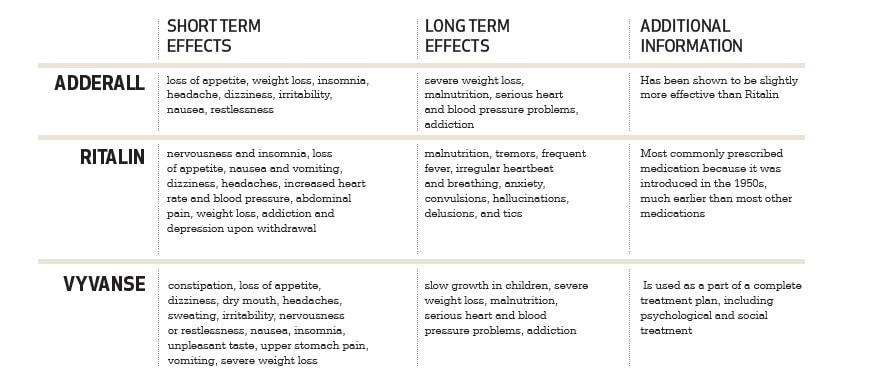 The side effects above are serious, especially for our growing young children. The graph below is real. Is it possible to find new treatments for ADHD that aren't so scary? Today one of the biggest problems we now face are people stealing and selling these prescription meds to get high. There are teens not only swallowing these pills for fun, but also snorting them and even injecting them. These real and scary facts bring me to a lighter subject, thankfully, and that is diet and supplementation. Before I share with you some of the latest nutirtional infomation related to ADHD, I do again want to clarify that this is not a controversial post about whether ADHD is real or fake etc. I personally do believe there is just cause to classify ADHD as a legitimate diagnosis. I also believe it is severely over diagnosed and also diagnosed prematurely. Before drugs are pushed, shouldn't we give diet and exercise a chance? Some of these youngsters that we are quick to diagnosis with ADHD eat 90% or more processed foods with most of that being sugar. Lucky Charms for breakfast is not feeding your child's body or brain. You are giving them pure sugar, then asking them to sit still, focus, and not pass out from the post sugar rush coma. Also, the lack of physical exercise these children now get is at an all time high. Some of these children get the most exercise from their day from only recess. The go home, snack, and sit the rest of the afternoon and evening in front of screens. So evaluating the individuals diet and exercise is a very important first step. Now we look at those whom still struggle after a diet and exercise program was not as successful as needed. Well, the exciting new word is that Magnesium may just be what the doctor needs to order (lol, for realy though). 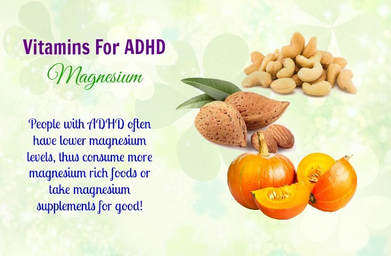 We are starting to see some great research emerging on the relationship of Magnesium and ADHD. The following study is one of many to choose from. This one is short and sweet, so I thought I would include it.Magnesium supplementation in children with attention deficit hyperactivity disorder Magnesium supplementation in children with attention deficit hyperactivity disorder Author:FaridaEl BazaHeba AhmedAlShahawiSallyZahraRana AhmedAbdelHakim Under a Creative Commons licenseAbstractBackground Attention deficit hyperactivity disorder (ADHD) is a common neurodevelopmental disorder with associated mineral deficiency. Aim To assess magnesium level in ADHD children and compare it to the normal levels in children. Then, to detect the effect of magnesium supplementation as an add on therapy, on magnesium deficient patients. Methods The study was conducted on 25 patients with ADHD and 25 controls. All subjects had magnesium estimation in serum and hair. ADHD children were further assessed by Wechsler intelligence scale for children, Conners’ parent rating scale, and Wisconsin card sorting test. Then magnesium deficient patients were assigned into 2 groups, those who received magnesium, and those who did not. The difference between the studied groups was assessed by Conners’ parents rating scale and Wisconsin card sorting test. Results Magnesium deficiency was found in 18 (72%) of ADHD children. The magnesium supplemented group improved as regards cognitive functions as measured by the Wisconsin card sorting test and Conners’ rating scale. The patients reported minor side effects from magnesium supplementation. Conclusion Magnesium supplementation in ADHD, proves its value and safety. Another Great Article:
Case Magnesium deficiency is found more frequently in children with attention deficit hyperactivity disorder (ADHD) than in healthy children. In one study of ADHD children, magnesium deficiency was found in 95 percent of those examined (1). Does this warrant magnesium supplementation for hyperactive children? The answer is yes. Supplementation with magnesium appears to be especially helpful for alleviating hyperactivity in children (2). In a group of children supplemented with about 200 milligrams (mg) per day of magnesium for six months, there was “an increase in magnesium contents in hair and a significant decrease of hyperactivity” compared to children in the control group who had not been treated with supplemental magnesium (3). Magnesium Is Safe and It Works A review that looked at studies done on magnesium for the treatment of ADHD in children concluded that although “studies supported that magnesium is effective for treating ADHD…until further strong evidences for its efficacy and safety are provided, magnesium is not recommended for treating ADHD.” (4) This is typical of modern “evidence-based” medical literature. Some medical professionals will ignore what is already known unless a sufficient number of double-blind randomized studies have been performed. Magnesium supplementation is safe and effective, and it is critically important for children who are deficient. The safety of magnesium has been well established. There have been no deaths reported from magnesium supplementation. None (5). An overdose of magnesium may result in loose stool. This is temporary, and will go away once dosages are reduced or divided into smaller amounts of magnesium given throughout the day. Magnesium supplementation is safe and it is worth trying, especially when we consider the dangers of ADHD drugs. ADHD Drugs Are Dangerous Depending on which ADHD drug is being taken, side effects of overdose include mydriasis, tremors, anxiety, agitation, hyper-reflexia, headache, gastrointestinal upset, combative behavior, confusion, hallucinations, delirium, dizziness, dystonia, insomnia, paranoia, movement disorders, tachycardia hypertension, seizures, and yes, even hyperactivity, the very condition an ADHD drug is supposed to be treating. Oh, and they can kill you (6,7). Even if “fatalities are rare” (7), I imagine this brings little comfort to parents. Moreover, the most common side effects of ADHD drugs, taken as prescribed, are appetite loss, abdominal pain, headaches, sleep disturbances, diminished growth, hallucinations and psychotic disturbances (8). Magnesium produces none of these effects. And even though magnesium is both safe and effective, nowhere in the report from the American Academy of Pediatrics (AAP) Clinical Practice Guideline for ADHD is magnesium supplementation recommended (8). When it comes to the potential for kids to die suddenly from taking their prescribed ADHD medication, concerns are dismissed by the AAP with statements like “evidence is conflicting as to whether stimulant medications increase the risk of sudden death” (8). One would hope that with this level of uncertainty about the risk of death, the medical advice would be against the use of ADHD medication. Instead, the recommendation from the United States Food and Drug Administration (FDA) is “continue your ADHD treatment as prescribed by a healthcare professional” (9). Just be sure to “talk to your healthcare professional about any questions you may have about ADHD medications.” Well, never has “talking about it” made medication any less dangerous. Other Benefits of Magnesium In addition to its effectiveness for treating hyperactivity, magnesium also benefits children in other profound ways: it can help kids sleep better at night, relieve discomfort from sore muscles and growing pains, relieve constipation, reduce anxiety, and reduce headache days (10). “I have come to the conclusion that everyone could benefit from extra magnesium supplementation.” – Carolyn Dean, MD, ND Magnesium and Other Nutrients for ADHD ADHD is not caused by a drug deficiency. Instead of giving drugs to our children, we should look to the benefits of providing them with optimal nutrition. Children with ADHD may benefit from optimal levels of several nutrients including vitamin D (11), iron (12), niacin (B3), pyridoxine (B6), vitamin C, and omega-3 fatty acids (13). In addition to removing refined sugar from the diet, avoiding artificial food dyes, and providing healthy food, pediatrician Ralph Campbell, MD, recommends a vitamin B complex supplement be given with breakfast, an additional 100 mg of B6 at another meal, and 200 mg or more of magnesium per day for ADHD children (13). Other helpful tips include limiting screen time and increasing exercise, especially in the outdoors. Dosage The recommended dietary allowance (RDA) of magnesium for children ages one to three is 80 mg per day. Children ages four to five: 130 mg magnesium per day. By age nine, our government recommends that kids should be getting (at least) 240 mg of magnesium per day. And at age fourteen, between 360 to 410 mg per day. Keep in mind, only about 30 to 40 percent of dietary magnesium is absorbed by the body (14). Remember, too much magnesium in a less-absorbable form can cause loose stool. This side effect can be prevented by reducing the amount of magnesium given and providing it in a more absorbable form. If larger total daily doses of magnesium are required, divide the dose into smaller amounts and give it multiple times throughout the day. One of my favorite articles you can google if you are more interested comes from The Egyptian Journal of Medical Human Genetics (www.ejmhg.eg.net). Original article title: Magnesium Supplementation in Children with Attention Defect Hyperactivity Disorder May 2015. The article has graphs to show the success with Magnesium supplementation for those with ADHD. As we dig a little more we do find that other vitamins and minerals are super important also for the management of ADHD. As a health care provider that strives to help others find the causes of their health care concerns and help treat them, rather than band-aid them, it gives me a lot of positive hope to share this post with you. I hate to see the road to prescription help being the only road possible for people. From the articles above, you know there is no harm that can be done from eating healthier, exercising more regularly, and supplementing your diet with high quality supplements. I have three daughters of my own, I know it is NOT easy to make sure they take extra supplements to fill in those inadequacies that we have from our diet. I will say this though, our supplement companies that we carry do an AMAZING job of supplying us with kid friendly supplements. We try each and every supplement ourselves to know how they taste. The most excited and newest addition to Standard Process, one of our supplement suppliers, is the new Magnesium  These make me SO excited!!!! This is such a easier way to get your Magnesium, plus it's kid friendly. This was just released and we were able to get a sneak peek preview and taste about a month ago. Not going to lie, it looks a wheee bit like grass, but it taste great. You can easily add a stick to a simple water bottle on the go, or in your other shakes. I am going to add a little more info about it below. E-Z Mg™ is a plant-based, multiform magnesium (Mg) developed to support patients with inadequate dietary magnesium intake. Made from two key ingredients: Swiss chard (beet leaf) and buckwheat – both grown on our sustainable and certified organic farm in Wisconsin.
The plant-based, multiform magnesium in E-Z Mg™ may be absorbed by the body the way nature intended. The naturally occurring multiform magnesium in E-Z Mg™ is not expected to contribute to gastrointestinal side effects that are common in other forms of magnesium supplements. Also, recent findings show our plant-based magnesium exhibits significantly higher levels of ionized magnesium in cerebrospinal fluid after only 14 days after administration.Why is There a Gap in Dietary Magnesium Intake? The Standard American Diet (SAD) is high in processed foods and carbohydrates, low in vitamins and minerals. This inadequate daily intake of plant materials helps contribute to magnesium deficiency.3 Data also suggests that produce - especially vegetables - has experienced a decline in mineral content over the last century.4 Key IngredientsE-Z Mg™ consists of extracts of two key ingredients: organic dried Swiss chard (beet leaf) juice and organic dried buckwheat (aerial parts) juice delivering 85mg of elemental magnesium. The PRAL value in each serving is estimated at -8.9mEq which may help promote urine and whole-body alkalization. The following are three great and highly recommended Supplements for your kiddos: 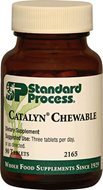 Catalyn Chewable contains vital nutrients from whole foods and other sources.*
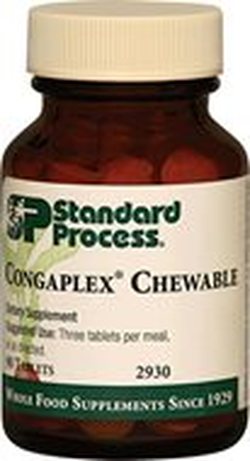 Congaplex Chewable is used for short-term support of the immune system.*
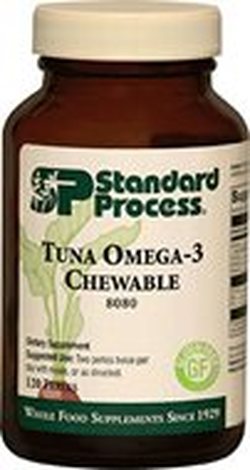 Tuna Omega 3 Chewable delivers essential omega-3 fatty acids*
Please don't hesitate to stop by the office and ask about the supplements we carry and how we can help you.
0 Comments
Dr. Chelsea Bachelor Happy Fall ya’ll! The weather is changing and its now time for the cozy sweaters and warm drinks. But as the temperatures start to drop you may notice an uprising of sneezing and stuffy noses, commonly caused by the abundance of ragweed pollen in the air. Sensitivity to ragweed is very common, in fact approximately 1/10 people are affected by some kind of seasonal allergy. Now “allergy” is a fairly recognizable word, but how do they work? Why do some people have them and some don’t? Why does something like ragweed affect one person and not another? An allergy occurs when an individual develops an abnormal hypersensitivity to a certain substance that is generally accepted as harmless. These substances can include things like ragweed, pet dander, dust, etc., and often include sneezing, runny nose, and itchy eyes but sometimes can be more severe.
The way the body reacts to foreign things is regulated by our immune systems. For those with a ragweed sensitivity - when it is inhaled the immune cells absorb and mount an improper reaction to it by releasing histamine. This chemical mounts an inflammatory response in order to flush the supposed problem back out (i.e. runny nose, watery eyes, sneezing, etc.) Recent studies have found more and more evidence supporting the overlap between allergies and psychological stress. Both incite a similar inflammatory response in the body, and stress can worsen or stir up an allergy by exaggerating the immune system’s response to an allergen. Chronic stress wears out the adrenal glands and decreases the availability of some essential anti-inflammatory hormones. Without the help of these hormones, the body is vulnerable to having inflated responses to harmless substances. Can Chiropractic help? Chiropractic adjustments help to maintain open communication between the body and the brain. The collaboration between the immune system and the nerve system is very well documented, and they are constantly communicating and influencing each other. There are many reasons why allergies develop, and an issue with either system can create problems. The nerve system is essentially an information gathering station in the body, and it notifies the immune system when there is an issue. If there's a problem within the nerve system, it may misidentify a harmless substance as a dangerous one and tell the immune cells to get rid of it. Having a spine free of interference opens communication and stimulates proper healing throughout the body. On the other hand, an allergy may arise from a malfunction specifically within problematic immune cells. We cultivate and develop new immune cells everyday, and one way to ensure the new generation of cells functions appropriately is to keep the nerve system open and clear. Due to the many reasons why allergies develop, adjustments do not cause improvement in all cases. However, many studies have shown that regular adjustments increase the efficiency of immune system responses. If you suffer from seasonal allergies, consider the benefits of chiropractic care! |
AuthorsDr. MJ Wegmann, Archives
July 2023
Categories
All
|


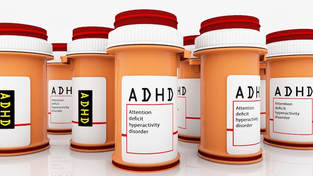
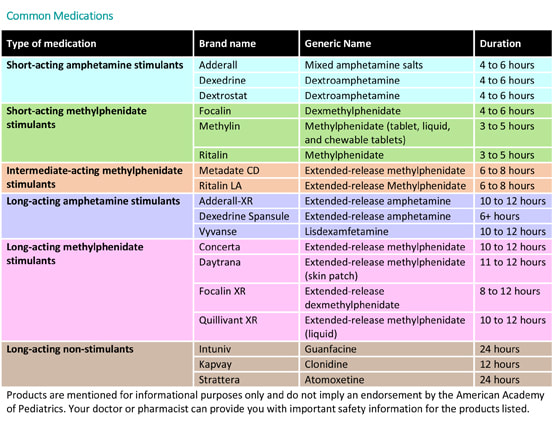
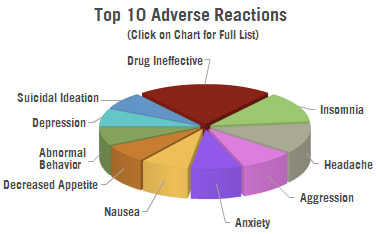


 RSS Feed
RSS Feed